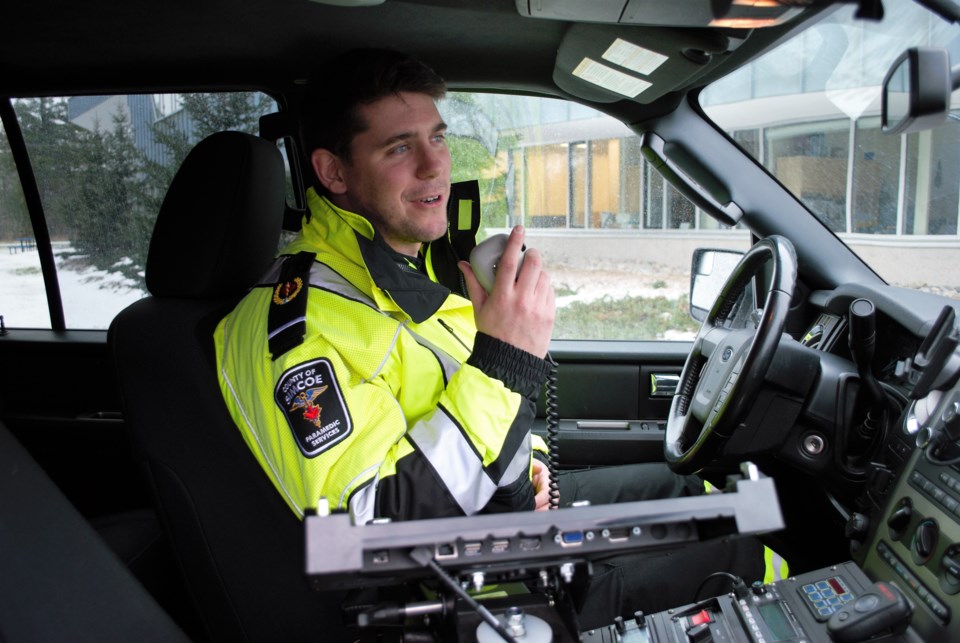Simcoe County’s paramedics are calling on the public to help reduce non-emergency 911 calls and conserve supplies.
Though the county’s emergency services have been preparing for the pandemic, the extra precautionary measures, including mandatory 14-day isolation for staff who travelled, have added significant strain to both paramedics and long-term care workers.
“These extensive measures, combined with working long hours and the toll this emerging health crisis on our health-care system is taking on everyone working in the health-care sector, is concerning,” said Jane Sinclair, general manager of health and emergency services for the county.
Though the county did some early ordering of additional personal protective equipment (PPE) supplies and medications for paramedics and long-term care homes, staff are assessing those supplies on a daily basis.
There are widespread PPE shortages impacting health care in Ontario and Canada. On Saturday, Premier Doug Ford made an urgent plea to Ontario businesses to do what they could to retool and start manufacturing items like ventilators, gloves, masks, and other PPE.
There’s also the matter of staffing resources.
In Simcoe County, there is mandatory screening in place for all paramedics and staff at long-term care homes and senior services. Anyone with symptoms cannot report to work, and anyone who travelled must self-isolate for 14 days.
“On the paramedic side, we are managing from a staffing perspective and will continue to keep a close eye on our levels,” said Sinclair.
“With long-term care and senior services, we are starting to implement our county-wide business continuity plan and looking to seek support from other departments who have staff working in non-essential service areas,” said Sinclair. “We have not reached a crisis situation yet, as far as staffing, but we will start to implement these measures as needed.”
Because the county declared a state of emergency on March 18, Sinclair says there's more flexibility and agility for staffing and standard practices.
There are also other ways the public can help alleviate some of the pressure on the paramedic side, Sinclair said.
“Residents can do their part by limiting 911 calls to urgent calls only, and ensure they are providing detailed descriptions to the dispatch centre so when emergency services are deployed, we can prepare and conserve PPE supplies as needed,” she said.
“Please do not call 911 if your desire is to have paramedics give you a swab test for COVID-19. They do not offer this service.”
Sinclair also urged the public to adhere to public health recommendations and practise social distancing.
Both the provincial and federal governments and health ministries are urging everyone to stay home and self-isolate and to limit trips away from home to essential travel only.
Simcoe Muskoka District Health Unit recommends the following actions to protect yourself and others from COVID-19.
-
wash your hands often with soap and water or use alcohol-based hand sanitizers
-
sneeze and cough into your sleeve
-
avoid touching your eyes, nose or mouth avoid close contact with people who are sick
-
stay home if you are sick
-
clean and disinfect frequently touched objects and surfaces do not use surface disinfectant wipes to clean your hands
-
maintain a two-metre (six feet) distance between another person when you are in settings with other people.
“We’re all in this together,” said Sinclair. “Your co-operation and support will truly make the difference in flattening the curve and keeping our communities well.”
If you suspect you have the virus, but your symptoms remain manageable, you are being encouraged to stay home and self isolate.
If symptoms become urgent and/or life-threatening, you should call 911 or get to an emergency department, making sure to provide health workers and 911 operators with as much information as possible to allow them to prepare and protect themselves.
